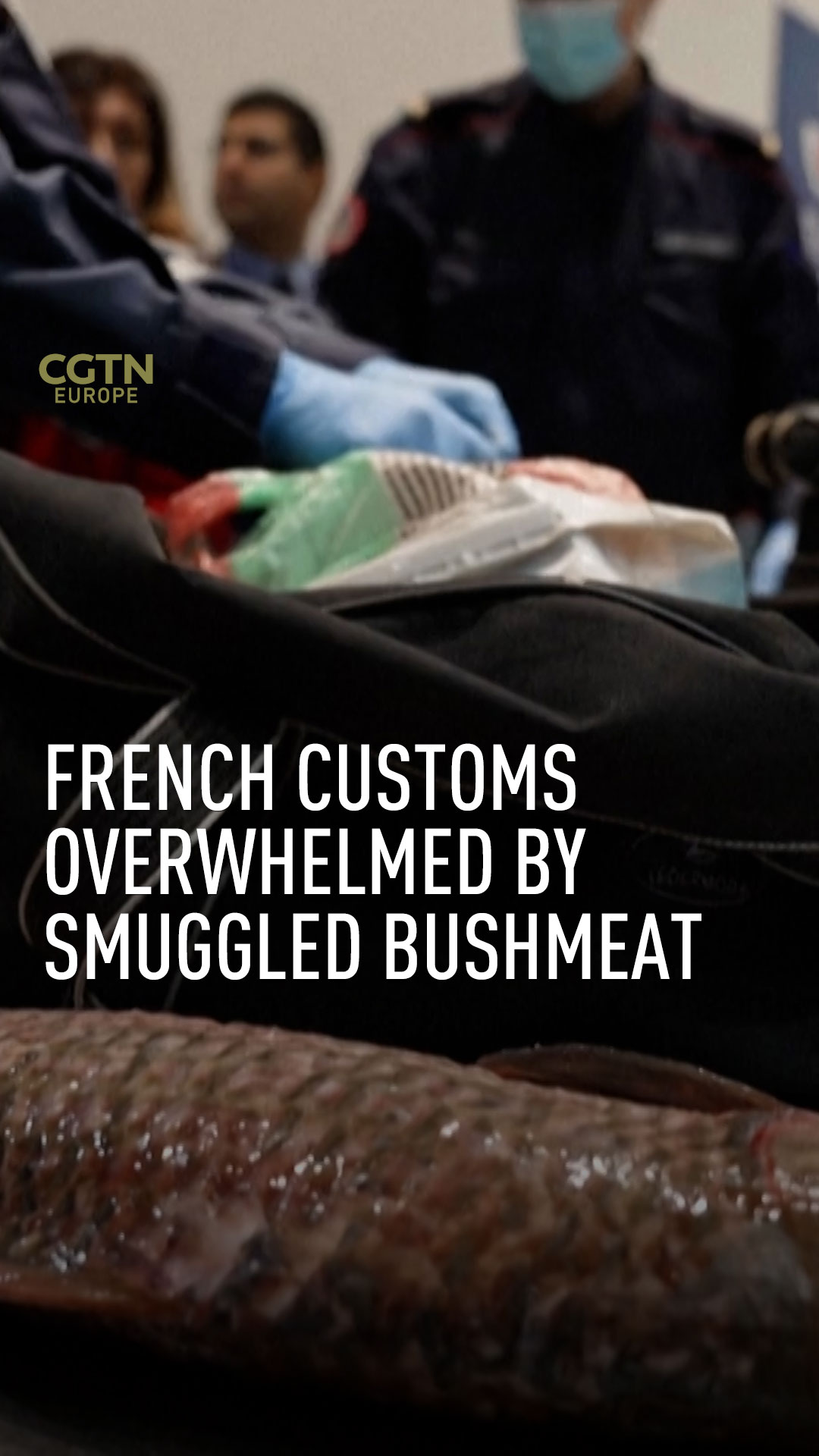01:41

Pangolins, monkey heads and even bats. At Charles de Gaulle airport in Paris, customs officers seize hundreds of kilograms of bushmeat every week.
Above all, the rancid smell of blood grabs the throat. Behind the customs officers are piles of pieces of meat, ranging from cooked chicken to pieces of python, along with large dried white worms.
It is the largest airport in the European Union and customs officers regularly seize several kilograms of meat from wild animals while searching luggage of travelers.
"Look at the state of this fish. Don't tell me you're going to eat this!" says a young agent, brandishing an animal swarming with white worms, which drip into a passenger's suitcase.
"It happens to us every morning to seize this kind of thing," says the customs officer. This passenger will receive no fine, for lack of time and means. Only repeat offenders or those transporting protected species are sanctioned.
READ MORE
UNHCR warns Syrian victims feel 'abandoned'
UN appeals for $1bn to help 5m+ in Türkiye
Hopes to find quake survivors fading
Faced with the massive influx of bushmeat, French customs say they are "overwhelmed." In 2021, customs at Terminal 2 seized 36 tonnes of illegal wildlife products, mainly from Africa or Asia.
Some of this meat is intended for personal consumption, "but there are also major currents of fraud" which, among other things, feed "clandestine restaurants," says Adrien Clopier, deputy head of Terminal 2.

Customs officers face a gruesome task at the Paris airport./AFP
Customs officers face a gruesome task at the Paris airport./AFP
"Given what we enter every day, you tell yourself that we are screwed. No one has learned the lessons of COVID!" adds its leader Emmanuel Bizeray.
For a nation known for eating snails, there is "no judgment" on the diet of passengers, but there is extreme concern because of the risk of diseases that can be transmitted from animals to humans. Plus there is the impact on biodiversity, with a large number of protected species seized like monkeys and endangered large primates.
"We are on a Russian roulette" in the face of diseases, warns Bizeray, deploring "a systemic problem."
According to the International Union for Conservation of Nature (IUCN), wildlife trafficking represents $24.6 billion per year. Faced with this organized crime which contributes to the disappearance of biodiversity, it is necessary to step up the fight against animal trafficking, believes its president Maud Lelievre.
Restricting the number of bags offered by airlines is one solution, according to some customs officers. Lelievre says two lots of 23 kilogram bags per person is far too much. "We have known for several years that if we reduce luggage, we reduce this import," she says.
IUCN and Aeroports de Paris (ADP) announced recently an awareness campaign for travelers on the health and criminal risks involved. The association is also asking the government for better regulatory provisions and that the legal liability of the carrier be enshrined in international law.
Concrete and rapid measures and more investment is needed with customs officers "helpless and angry," adds Bizeray.
Source(s): AFP